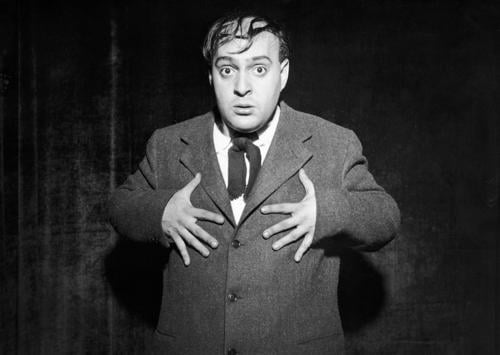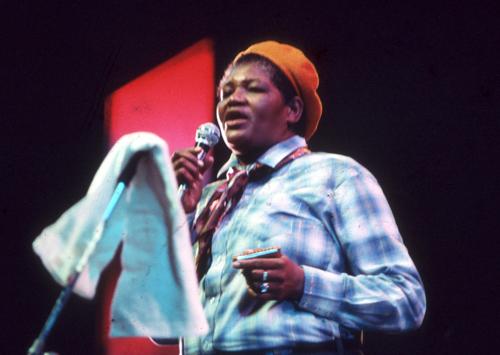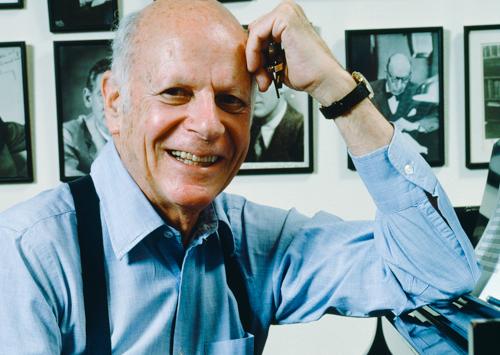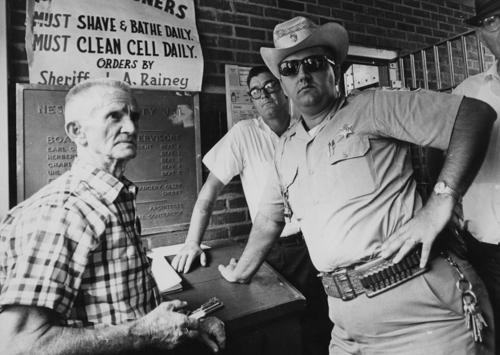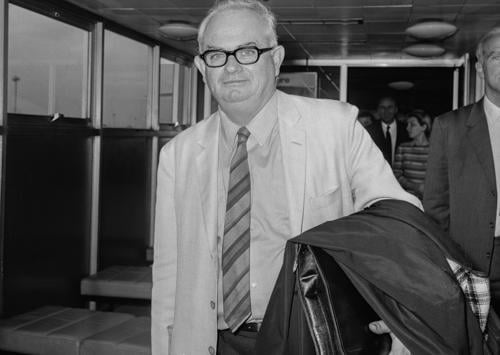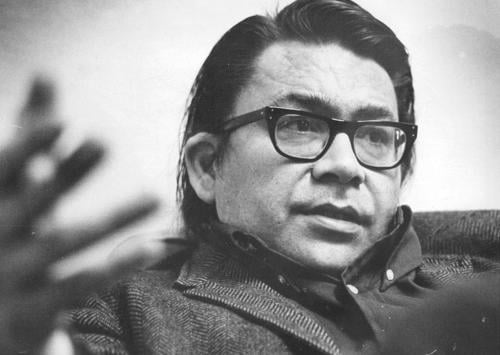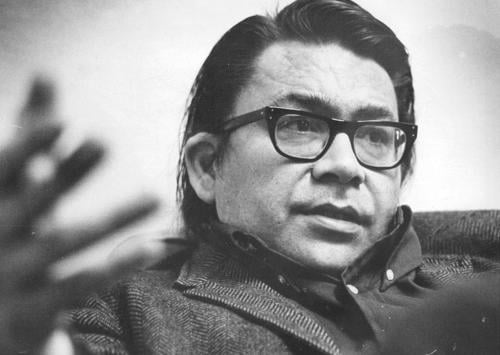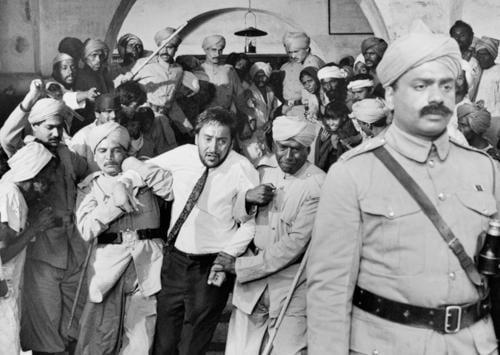Listen to New Voices on Studs Terkel our partnership with 826CHI-here! Read the Story
Showing 1 - 15 of 552 results
-
Zero Mostel discusses the play "Rhinoceros" and acting theory ; part 1
Aug. 14, 1961 Zero Mostel talks about acting theory, French and American theater differences, and the reflection of art in society.
-
Wolfgang Rubsam discusses his career as an organist and Associate Professor of church music at Northwestern University
Mar. 1, 1984 Studs interviews Wolfgang Rubsam who is performing at the St. Clements Catholic Church in Chicago. They discuss the sounds of the harpsichord, piano, and organ. Rubsam explains how the organ builder and the acoustics in a church affects the sound of the organ. Rubsam talks a little about various teachers he has had and the things he learned from each. The musical numbers are removed from this edited version of the original recording.
-
Willie Dixon, Sunnyland Slim and Big Mama Thornton discuss their careers in the blues and describe some of their songs
1970 Studs interviews blues singers Willie Dixon, Sunnyland Slim, and Willie Mae Big Mama Thornton about the blues. They discuss the blues festival in Chicago for which they are all in town for and name other musicians who will be performing. Sunnyland Slim talks about being on the road and the hard times. Thornton describes the blues as music made from life experiences.
-
William Schuman discusses his career as a composer
Apr. 10, 1986 American composer William Schuman discusses his career as a composer and music educator at the Juilliard School.
-
William Least Heat-Moon discusses his book "PrairyErth: (A Deep Map)"
Nov. 5, 1992 Discussing the book "Blue highways: a journey into America" with William Least Heat Moon.
-
William Gibson discusses writing plays
1969 Now being a professional playwright, William Gibson talked about being able to write one of his plays in 8 days. A lot of the discussion is about his play, "The Miracle Worker". After reading one of Annie Sullivan's letters, and learning about a battle royale that Sullivan had with Helen Keller, Gibson envisioned what that battle royale would look like. It became a now famous part of the play.
-
William Bradford Huie discusses his book "Three Lives for Mississippi"
May. 20, 1965 Author William Bradford Huie discusses his book "Three Lives for Mississippi;" reads passages from book.
-
William Ball discusses the American Conservatory Theater
Aug. 16, 1966 William Ball discusses the American Conservatory Theater in Pittsburg, PA. They discuss in great detail how different the company is. Specifically that they keep themselves learning and perfecting the classic style. Dick Christiansen theater and film critic joins the conversation.
-
Wilfred Burchett discusses about his career on journalism
Oct. 24, 1977 Wilfred Burchett (an Australian journalist) discusses his journalism career. He was reporting conflicts in Asia (North Korea, Vietnam, China and Japan) and their Communist supporters. He speaks briefly about his experiences in Nazi Germany and concentration camps. Towards the end of the interview he talks about his interest in learning and reporting more about the new euro-communism (prominent in Italy, Spain and France).
-
Wanda Wilkomirska discusses her life and music as a violinist
Apr. 14, 1981 Studs Terkel interview with Wanda Wilkomirska about her life as a violinist. They discuss her childhood and her musical family. Wilkomirska talks about the people and music that influenced her, and she describes the differences in audiences between large cities and smaller ones. She expresses her deep love for music and her need to play her music with emotion. Music performances are cut from this particular recording with Wanda Wilkomirska. Studs quotes Ray Erickson, critic from the New York Times and discusses other critiques of her work.
-
Walter J. Hickel discusses politics
Oct. 18, 1971 Discussing the book "Who Owns America?" and interviewing the author Walter J. Hickel, who became Governor of Alaska and Secretary of the Interior.
-
Vine Deloria discusses Native American rights and history
Jan. 20, 1975 Vine Deloria discusses Native American rights and history focusing on treaties formed and broken by the United State government. Original recording 1965063-3-1 includes music by Buffy Sainte-Marie.
-
Vine Deloria discusses his book "The Metaphysics of Modern Existence"
Oct. 12, 1979 Vine Deloria discusses his book "The Metaphysics of Modern Existence", religion, ethics, Native Americans, Native American culture, and Native American history. Includes a previous interview with Vine Deloria at O'Hare Airport.
-
Victor Banerjee discusses the film "Passage to India"
Apr. 23, 1985 In addition to talking about the film "Passage to India," Victor Banerjee, also talks about Gandhi and India's class system. Included in this interview are excerpts of Satyajit Ray and Shanta Gandi.


